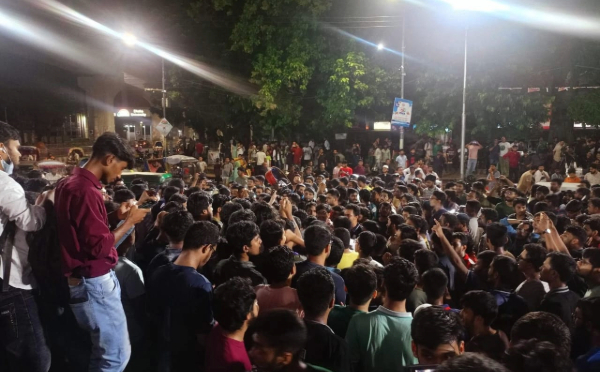BUET students stage late-night protest over businessman’s brutal killing and rise in extortion
BUET students stage late-night protest over businessman’s brutal killing and rise in extortion

Students of the Bangladesh University of Engineering and Technology (BUET) gathered in protest late last night (11 July), expressing outrage over the recent brutal killing of businessman Md Shohag and condemning the growing culture of extortion and impunity in the country.
The demonstration, which began at approximately 10:30 pm on the BUET campus, saw large numbers of general students demanding justice for Shohag, who was beaten to death in front of the emergency gate of Sir Salimullah Medical College Hospital in Dhaka. Eyewitness accounts and reports indicate that the assailants had long been involved in extortion and were reportedly linked to political circles.
In their official statement, BUET students decried the killing as a reflection of a broader, disturbing trend — the unchecked rise of politically backed criminal activities, including chadabaji (extortion), and the failure of the authorities to take meaningful action.
They outlined a five-point demand, which includes:Immediate and impartial investigation into Shohag’s murder and swift justice.
Arrest and maximum punishment of all perpetrators and those protecting them.
A nationwide crackdown on extortion networks and the political influence that sustains them.
Preventing the misuse of administrative and law enforcement agencies for political purposes.
Institutional reforms to ensure accountability from both administrative and political leadership.Students emphasised that such acts of violence and intimidation, if left unaddressed, would only deepen the public’s loss of faith in governance and justice.
They called on the interim government to directly intervene, demanding strong and sincere steps to restore safety and the rule of law.The late-night protest remained peaceful but powerful, underscoring growing public frustration over the erosion of security and justice for ordinary citizens.


